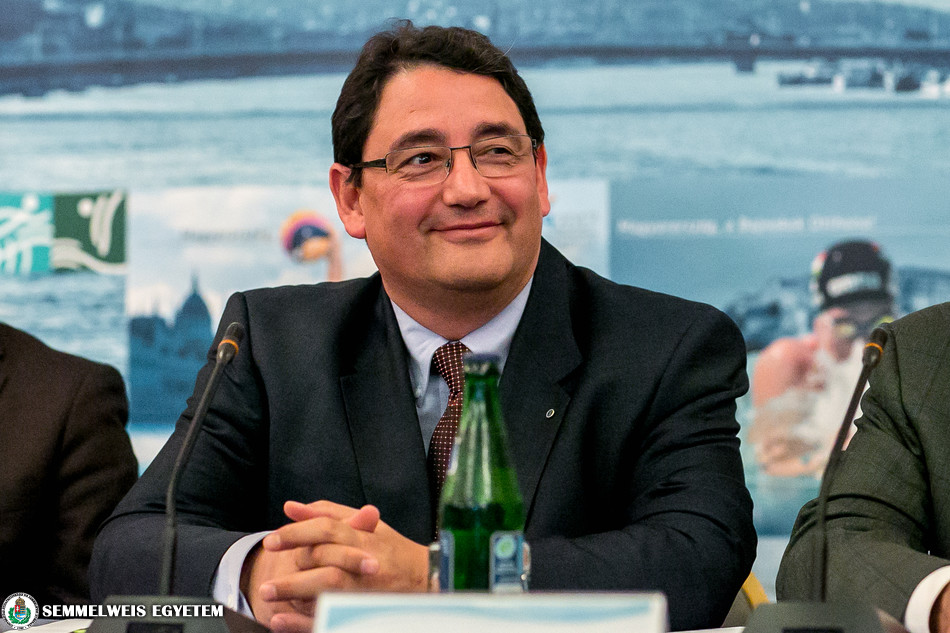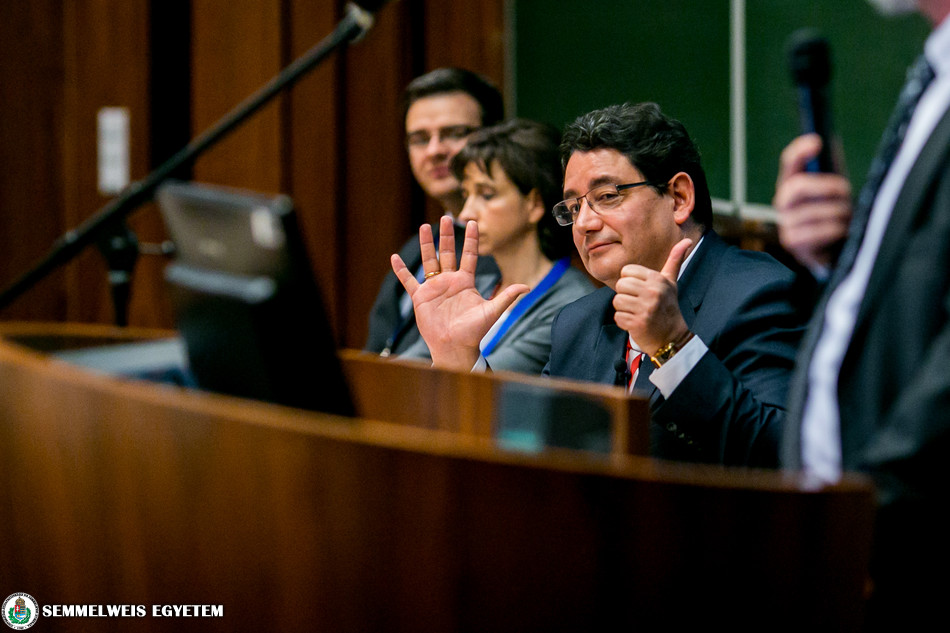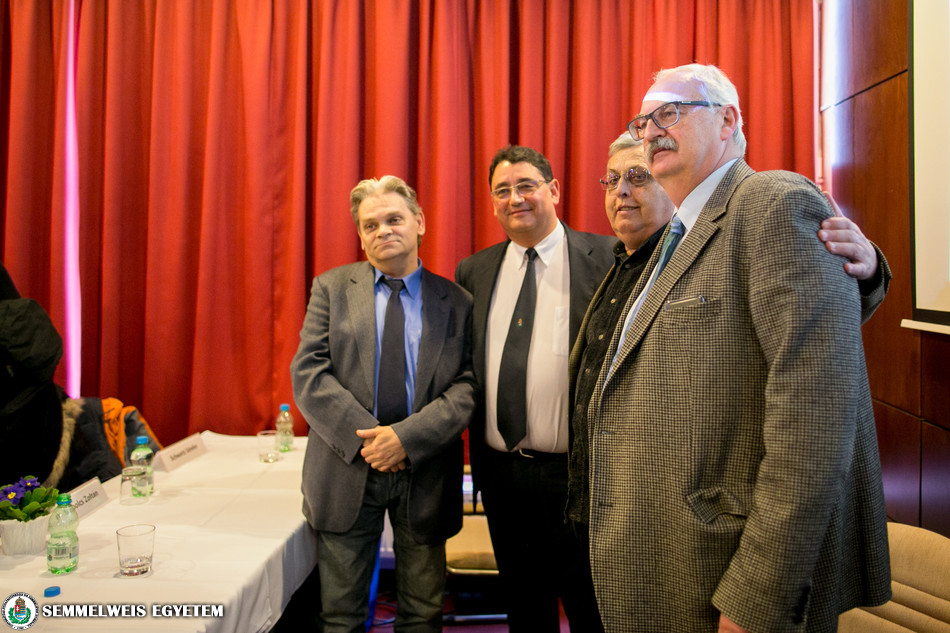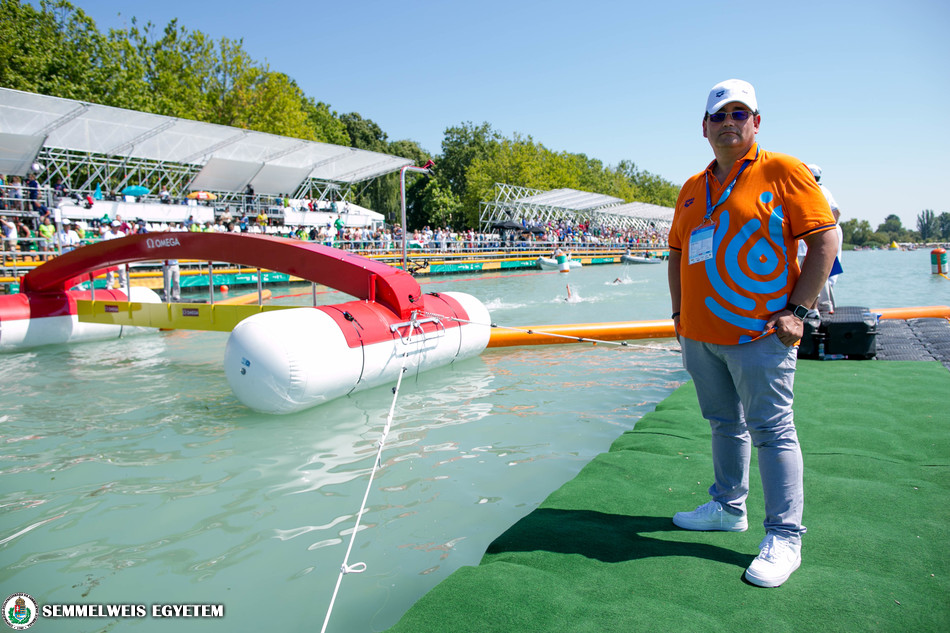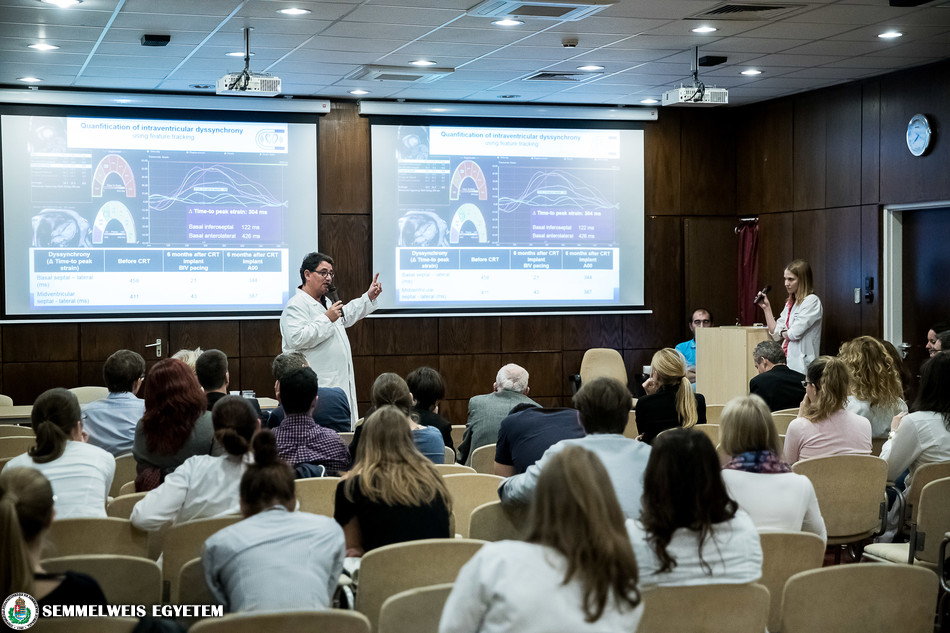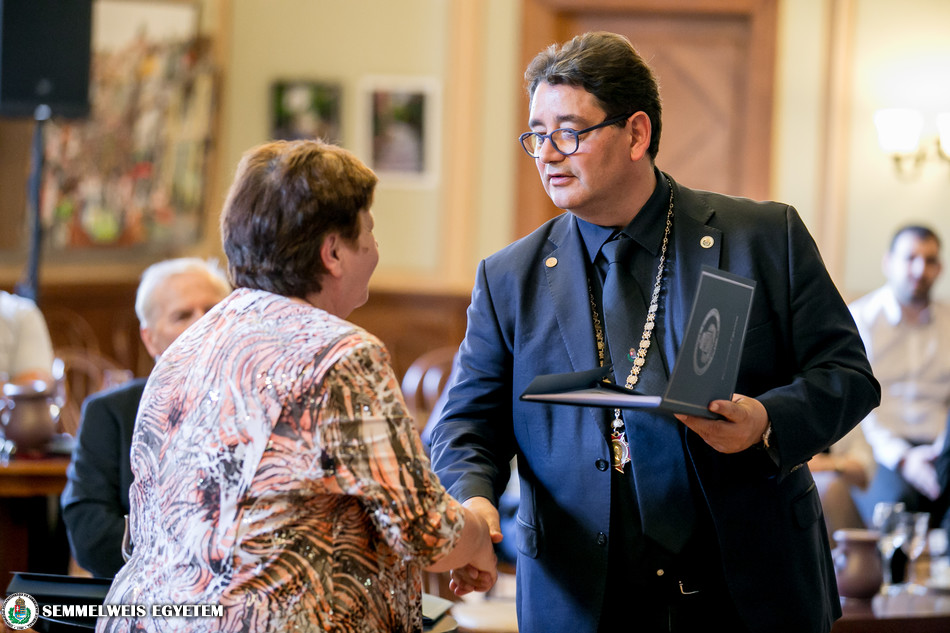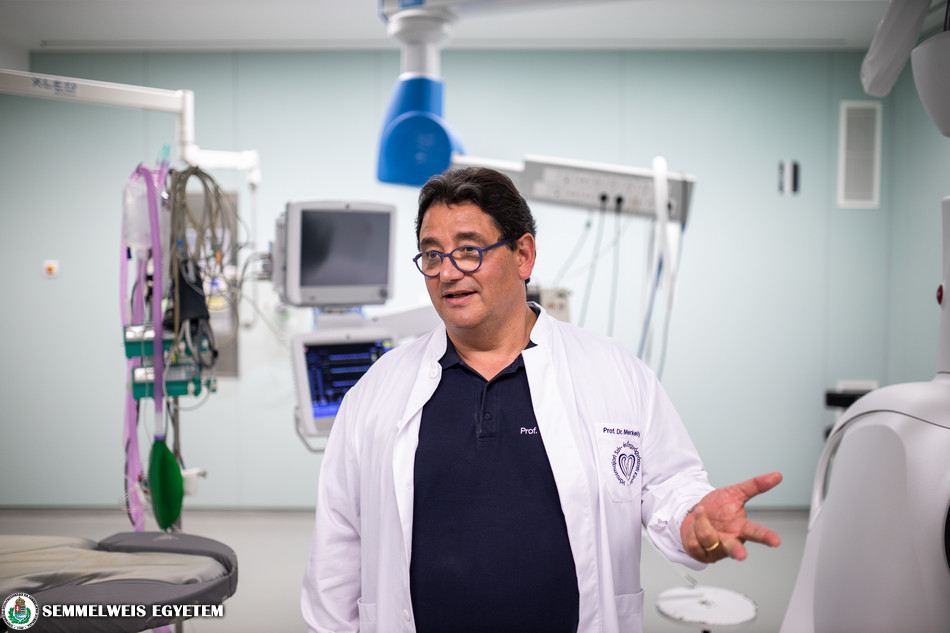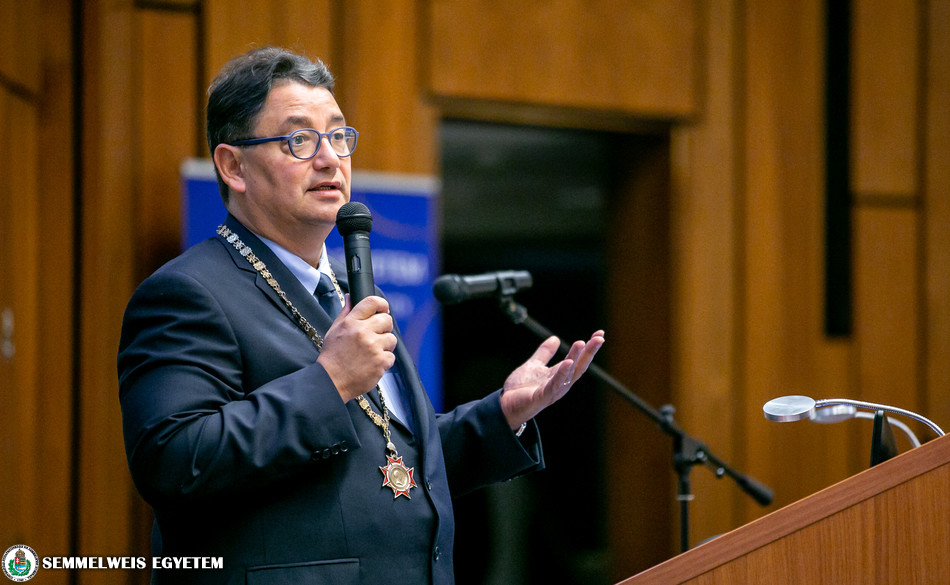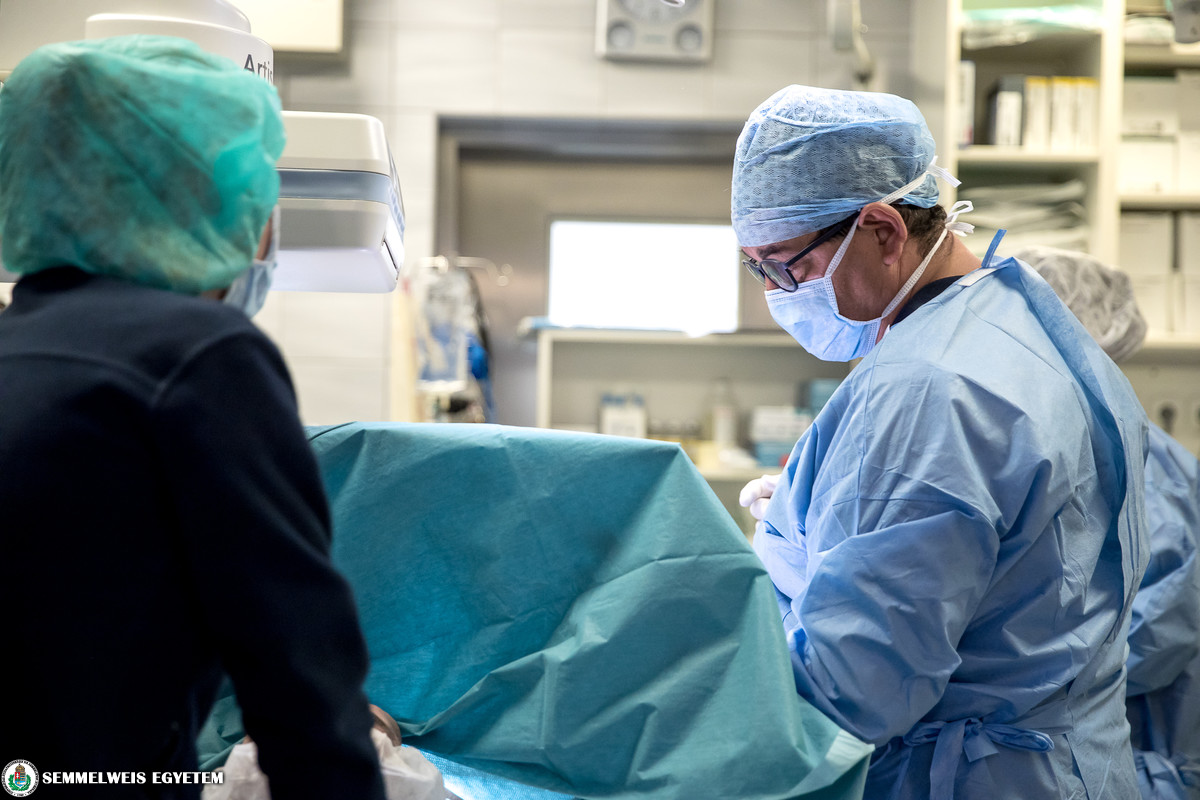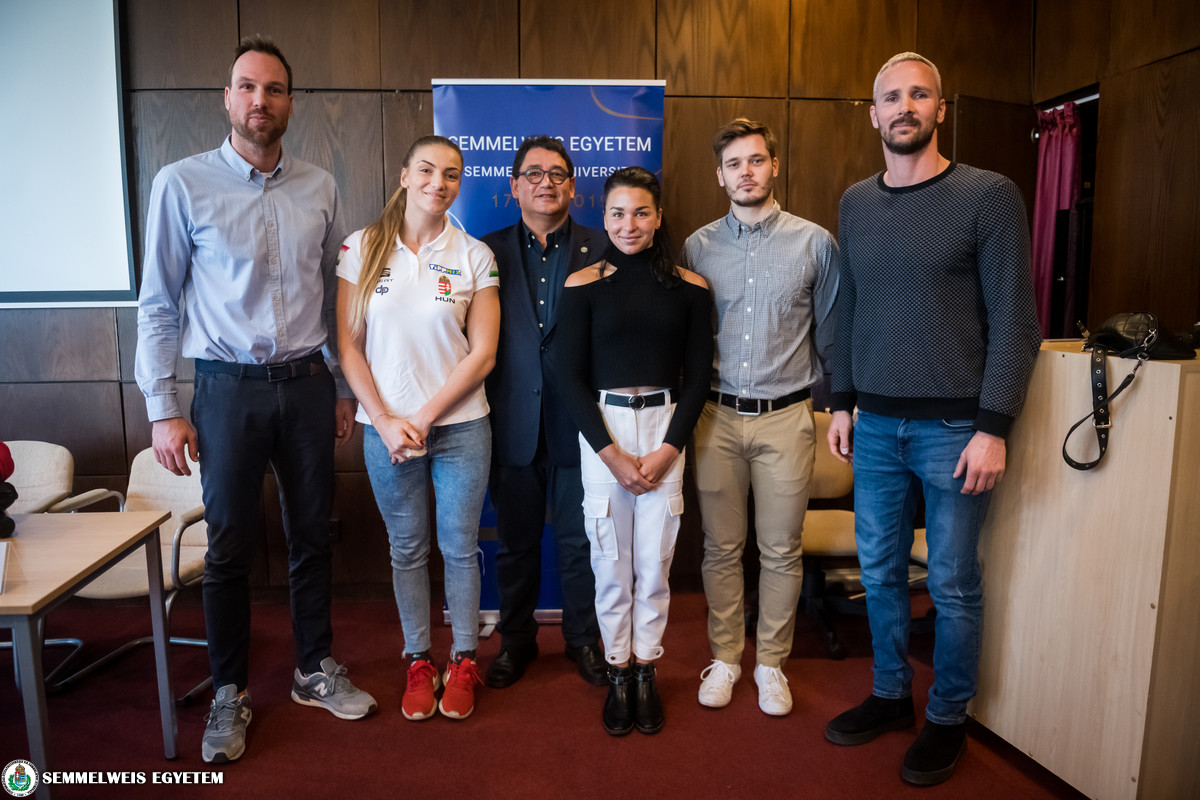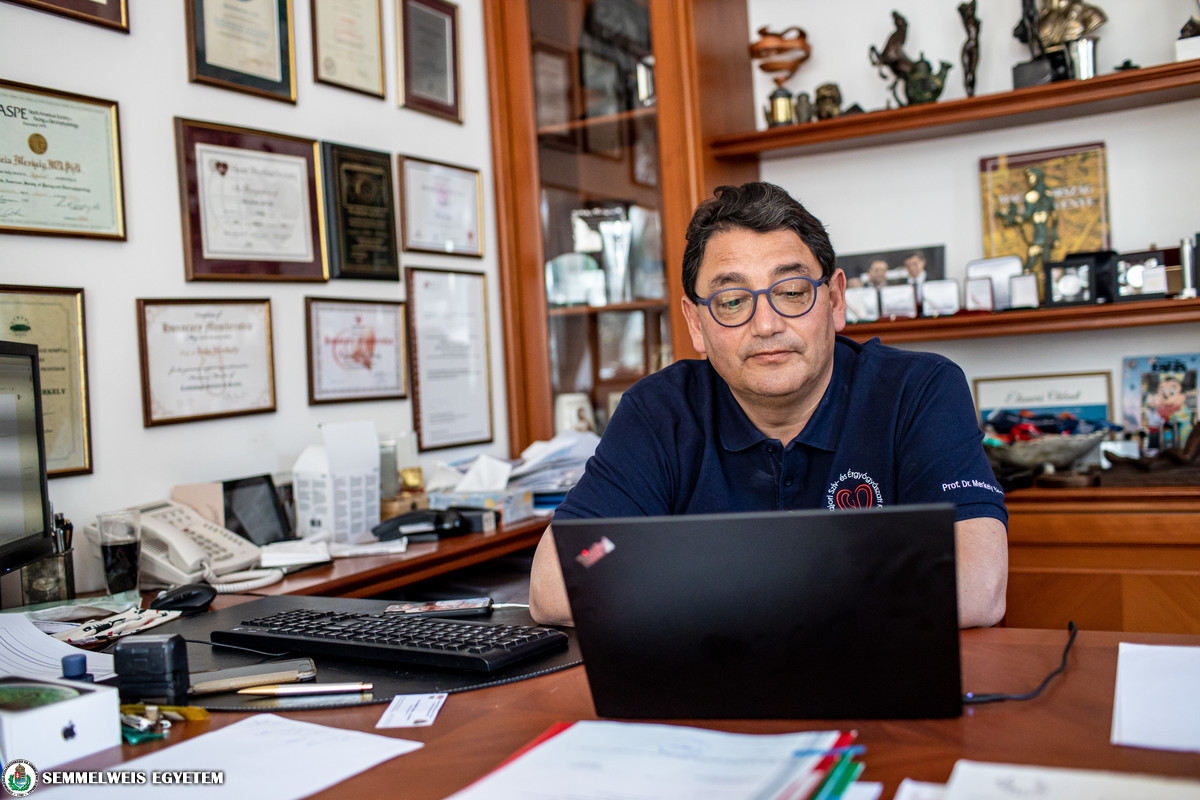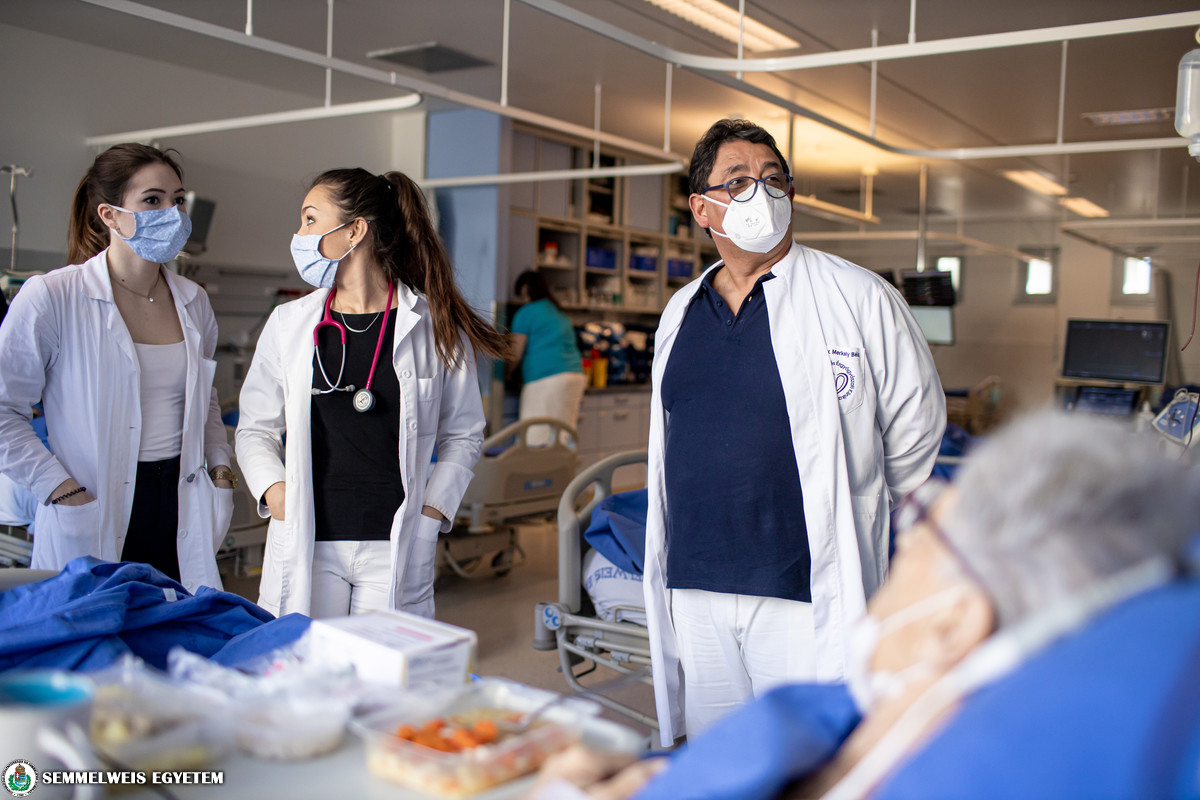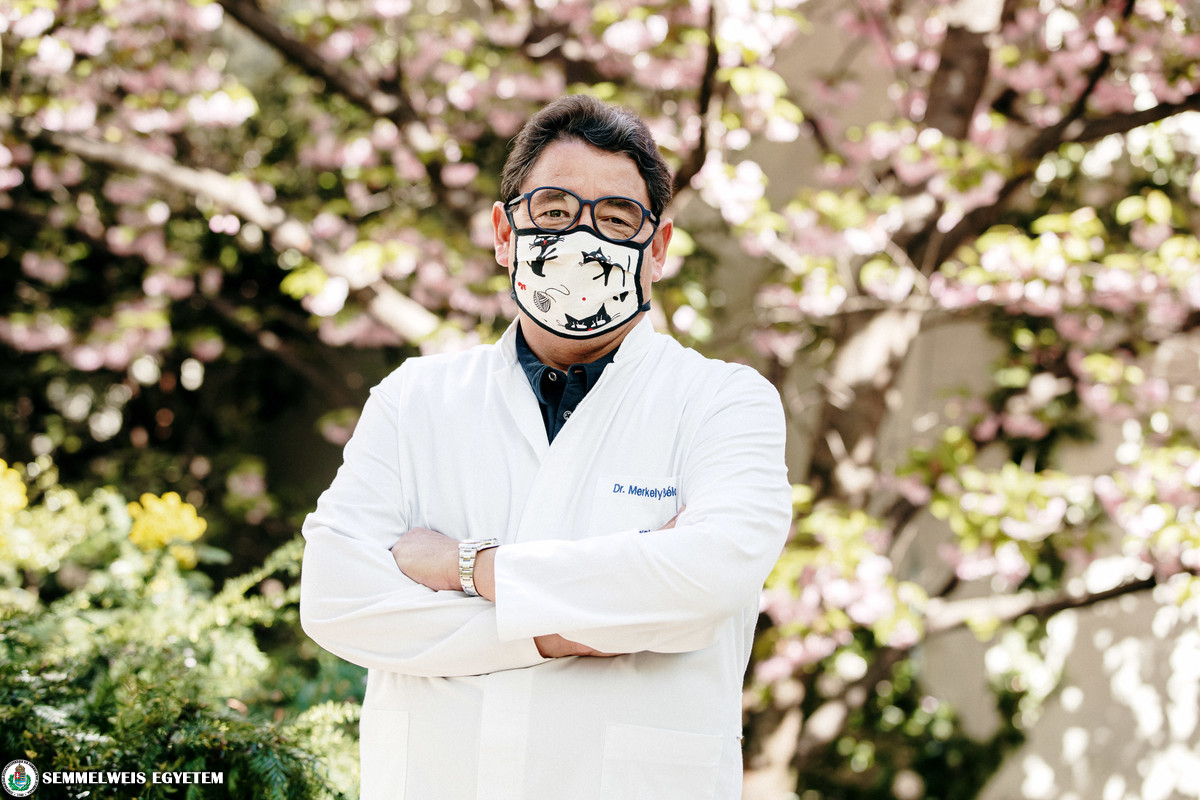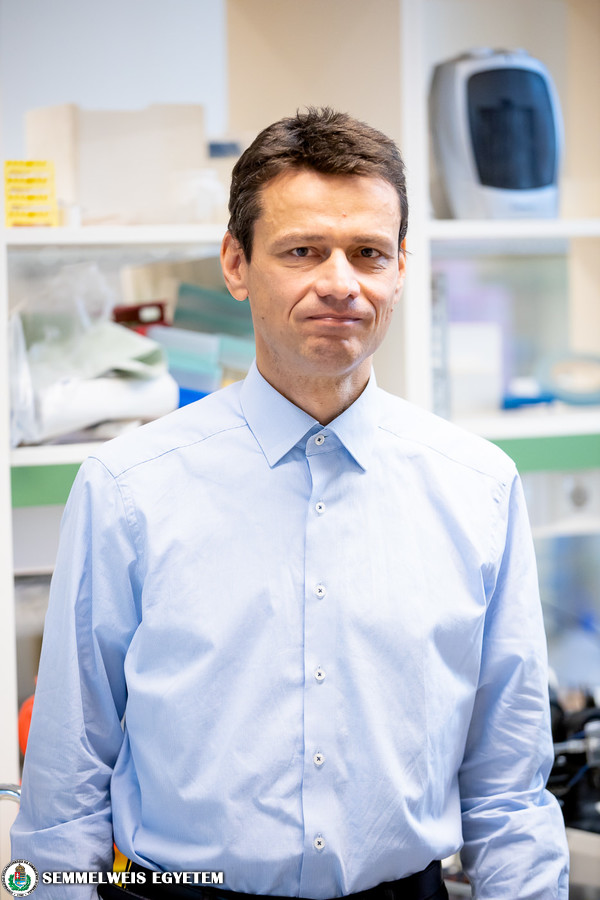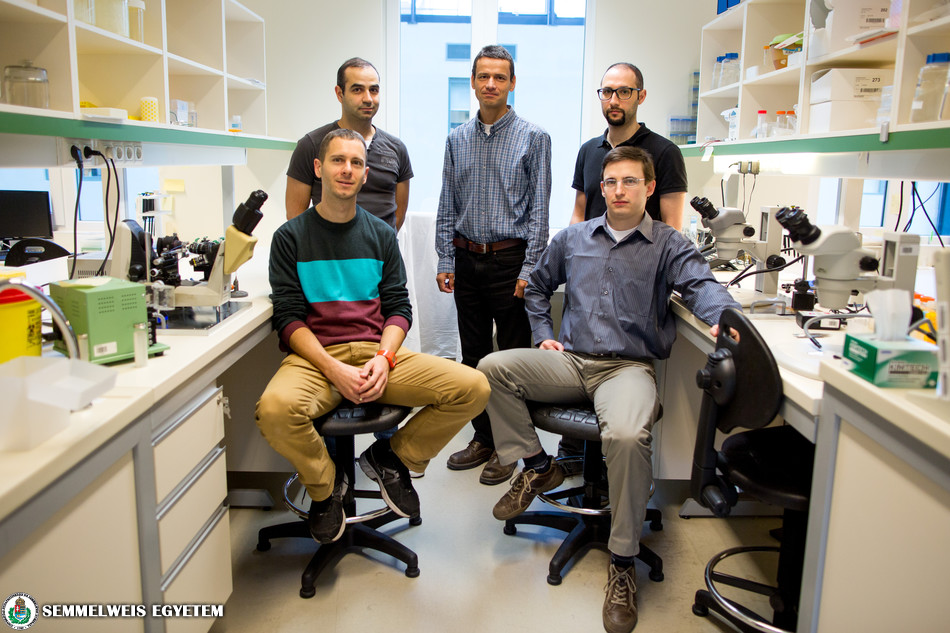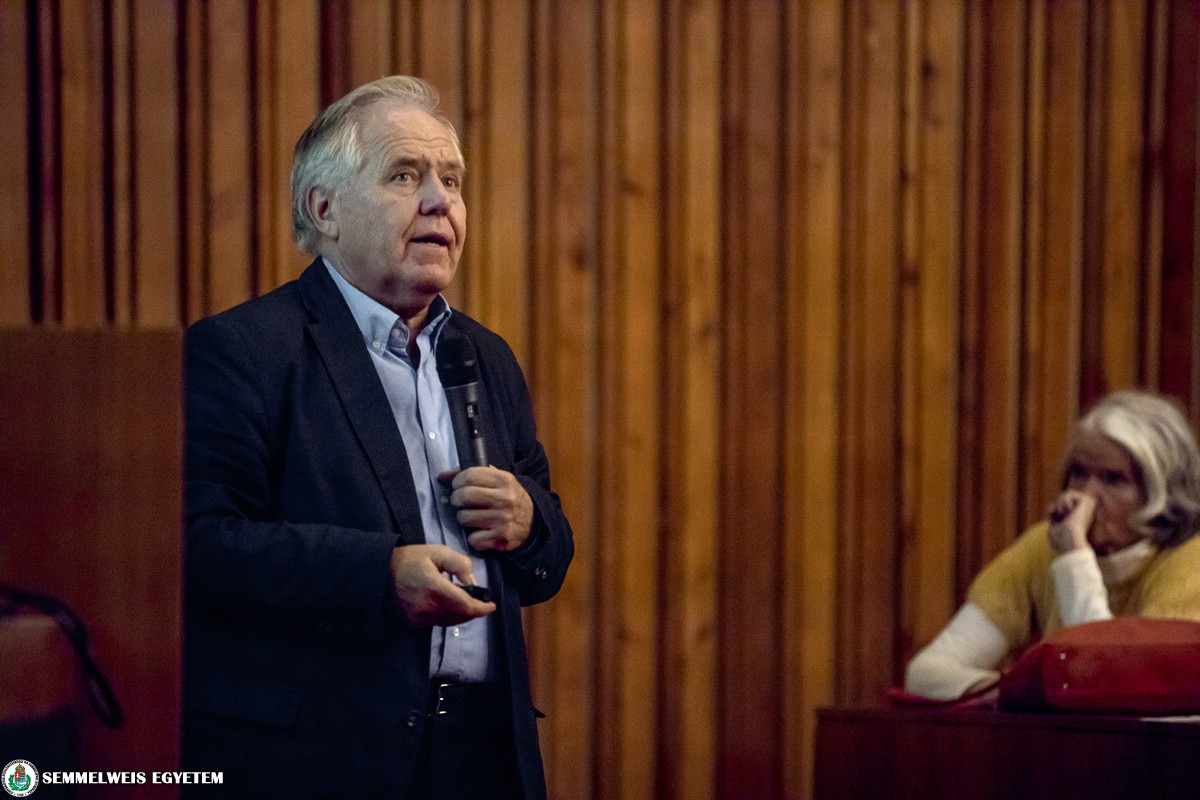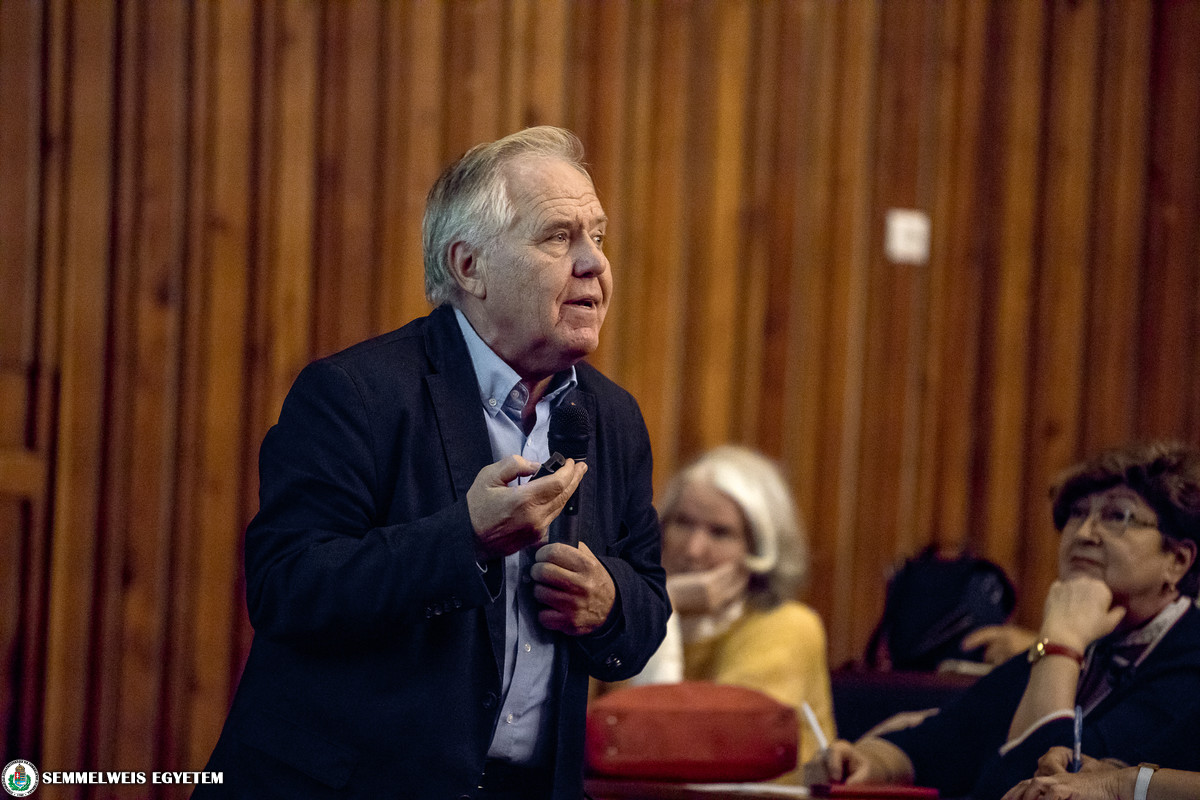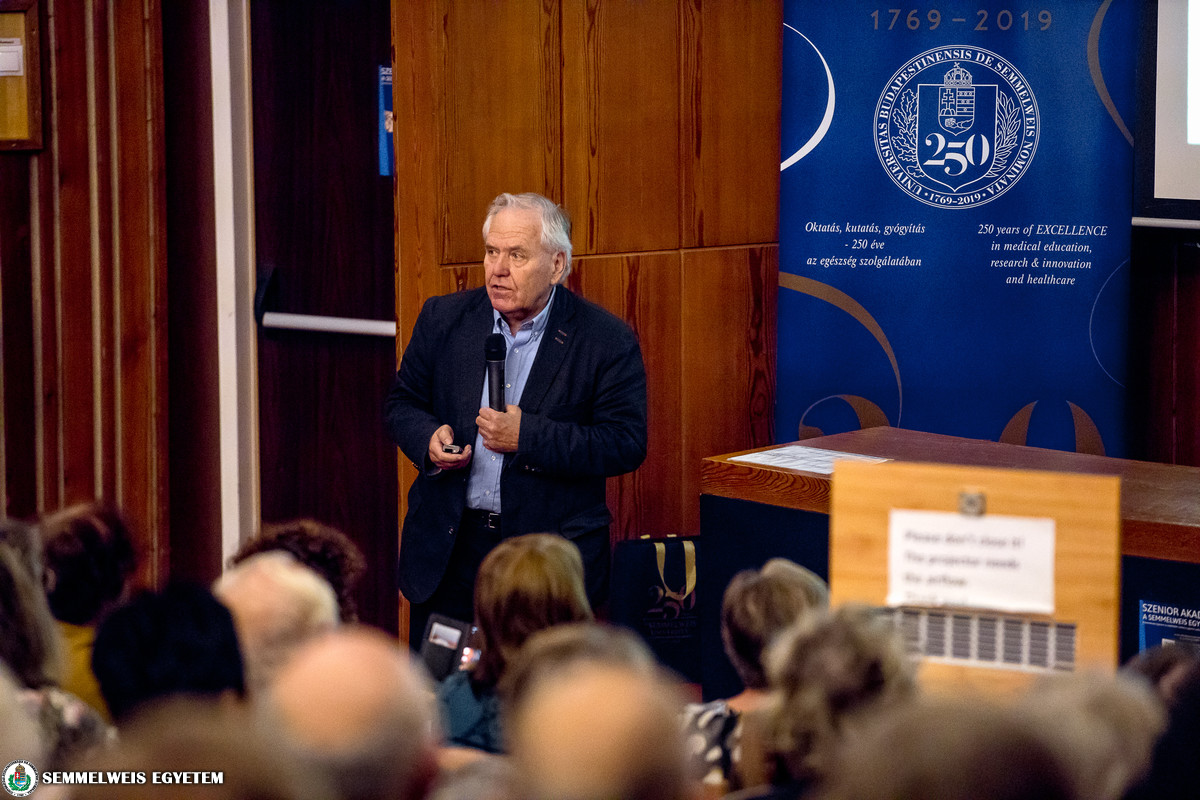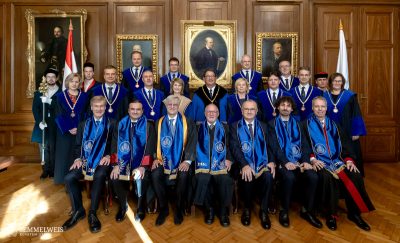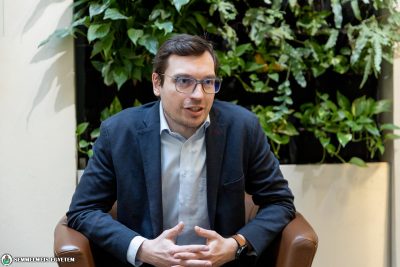On the occasion of the anniversary of the Hungarian Revolution of 1848, President János Áder awarded the Széchenyi Prize to Dr. Béla Merkely, Rector of Semmelweis University and Director of the Heart and Vascular Centre; Dr. László Csanády, Director of the Institute of Biochemistry and Molecular Biology and Dr. Gyula Poór, Professor of the Departmental Group of Rheumatology and Physiotherapy at the Department of Internal Medicine and Hematology. The prize was awarded to all three professors in recognition of their achievements during their exceptionally valuable academic careers. The decision regarding the recipients of the prize was published in the Hungarian Gazette (Magyar Közlöny) of 15 March, 2021. However, due to the current epidemiological situation, the state recognitions will be handed over at a later date.
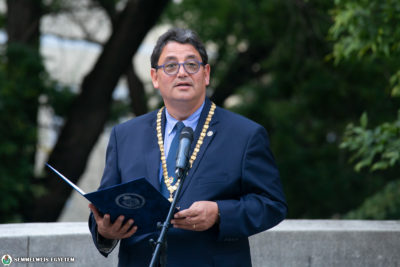 The Széchenyi Prize was awarded by the President of Hungary to Dr. Béla Merkely, cardiologist, Doctor of the Hungarian Academy of Sciences, Rector of Semmelweis University, Head of the Department of Cardiology of the Faculty of Medicine and the Departmental Group of Sport Surgery and Sport Medicine, Director of the Heart and Vascular Centre in recognition of his internationally recognized achievements in cardiology, his dedicated work in education and his outstandingly successful institutional and professional public activities – as the laudation published in the Hungarian Gazette (Magyar Közlöny) says.
The Széchenyi Prize was awarded by the President of Hungary to Dr. Béla Merkely, cardiologist, Doctor of the Hungarian Academy of Sciences, Rector of Semmelweis University, Head of the Department of Cardiology of the Faculty of Medicine and the Departmental Group of Sport Surgery and Sport Medicine, Director of the Heart and Vascular Centre in recognition of his internationally recognized achievements in cardiology, his dedicated work in education and his outstandingly successful institutional and professional public activities – as the laudation published in the Hungarian Gazette (Magyar Közlöny) says.
Dr. Béla Merkely graduated summa cum laude in 1991 from Semmelweis University. In 1996 he concluded his specialization in internal medicine, two years later in cardiology, in 2015 in clinical pharmacology and in 2017 in sports medicine. He became a qualified specialized health manager in 2009 and a certified health manager in 2014.
On July 1, 2007, he was appointed Head of the Department of Cardiology at Semmelweis University, and since July 1, 2012, he has been the Director of the Heart and Vascular Center.
From 2009 he chaired the Scientific Student Association of the university for ten years, and since 2010 he has been the Vice-Chair and Co-Chair of the Talent Management Committee of the Hungarian Rectors’ Conference.
Between 2015 and 2018, he was Vice-Rector for Clinical Affairs of Semmelweis University, and the President of the Clinical Center, since 2016 he has been the President of the Cardiology Chapter the of Health Professionals’ College, and since 1 July, 2018 he has been the Rector of the university.
He was the professional leader and an active participant in the introduction of catheter infarction care in Central Hungary, which reduced mortality by 60%. Throughout his career, he has introduced and further developed a number of minimally invasive, endovascular, catheter interventions, such as radiofrequency ablation in the treatment of arrhythmias, Implantable Cardioverter-Defibrillator (ICD) therapy to prevent sudden cardiac death, Cardiac Resynchronization Therapy (CRT) for heart failure, Transcatheter Aortic Valve Implantation (TAVI), and Transcatheter Aortic Valve Replacement (TAVR) procedures. He laid the new foundations of adult heart transplantation in Hungary and managed to lead it to the forefront of the world by creating and launching the Hungarian circulatory support and artificial heart program.
He is a member of almost all major Hungarian and international scientific societies focusing on cardiology, arrhythmia and pacemaker, interventional cardiology and cardiovascular system (circulatory) research. His main scientific achievements have been in experimental and clinical cardiac electrophysiology, non-pharmacological treatment of heart failure and arrhythmias, and interventional cardiology.
As Rector of Semmelweis University, he renewed the curriculum for medical and health sciences in the spirit of making Semmelweis University one of the top 100 higher education institutions in the world and the top five healing universities in Europe.
Since the appearance of the coronavirus in Hungary, Semmelweis University has played a key role in the fight against the epidemic on national level, including the clinical epidemiological analysis working group led by Dr. Béla Merkely, which brings together the presidents of the Clinical Centers of the four medical universities, renowned clinicians and infectologists. Several departments of the institution have been operating as a primary epidemiological hospitals since the first wave and many treatments (e.g: plasma therapy) that have proven to be effective against COVID-19 were used here for the first time in Hungary. During the first wave of the pandemic, the results of the national, representative coronavirus screening test carried out with the participation of the four Hungarian medical institutions, were decisive in the Hungarian strategy of infection control. Since the very beginning, the institution has been conducting extensive PCR testings and has been responsible for the epidemiological security of several international sporting events in Hungary (e.g: Formula 1; International Swimming League). By 14 March, 2021, nearly 74,000 vaccines had been administered at university vaccination points. Since the appearance of the virus, Dr. Béla Merkely has also played an important role in informing the population, drawing attention to the importance of infection control and vaccinations through interviews and informative lectures.
Award for the study of ion channels in cells
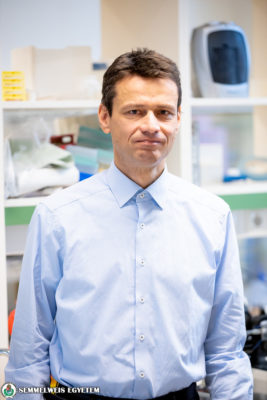 Dr. László Csanády, biologist and physician, Doctor of the Hungarian Academy of Sciences, Director of the Institute of Biochemistry and Molecular Biology at the Faculty of Medicine of Semmelweis University, Head of the Department of Biochemistry received the Széchenyi Prize in recognition of his outstanding work as a researcher of the Momentum Program of the Hungarian Academy of Sciences and his achievements in the study of ion channels in cells.
Dr. László Csanády, biologist and physician, Doctor of the Hungarian Academy of Sciences, Director of the Institute of Biochemistry and Molecular Biology at the Faculty of Medicine of Semmelweis University, Head of the Department of Biochemistry received the Széchenyi Prize in recognition of his outstanding work as a researcher of the Momentum Program of the Hungarian Academy of Sciences and his achievements in the study of ion channels in cells.
Dr. László Csanády, biologist and physician, was born in 1971 in Budapest. He graduated from Semmelweis University’s Faculty of Medicine in 1995, continued his studies at Rockefeller University in New York for five years and earned a PhD degree. He habilitated in 2013 and became a Doctor of the Hungarian Academy of Sciences in 2016. After returning home, he started working at the Institute of Medical Biochemistry at Semmelweis University, and between 2012 and 2017 he led a research group supported by the Momentum grant. He has been a university professor since 2018, and he has been the Acting Head of the Institute of Medical Biochemistry at Semmelweis University since 2019. Starting from 2020, he has been the Director of the Institute of Biochemistry and Molecular Biology at Semmelweis University.
His research topic is the structural and functional relationships of CFTR and TRPM2 ion channels in the body, which play an important role in biological signaling and have enzymatic activity. Mutations and changes in the function of CFTR channels lead to the development of the most common congenital, inherited metabolic disease, cystic fibrosis (CF). In 2017, he received an Academic Award.
Recognition for developing the National Osteoporosis Program
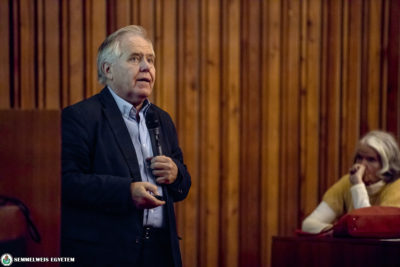 The Széchenyi Prize was awarded by the President of Hungary to Dr. Gyula Poór, physician, recipient of the Batthyány-Strattmann László Prize, corresponding member of the Hungarian Academy of Sciences, Chief Physician and Director General of the National Institute of Rheumatology and Physiotherapy and the National Medical Rehabilitation Center, Professor of Semmelweis University in recognition of his extraordinary achievements in the research and treatment of osteoporosis and arthritis, as well as his outstanding role in the development of the National Osteoporosis Program.
The Széchenyi Prize was awarded by the President of Hungary to Dr. Gyula Poór, physician, recipient of the Batthyány-Strattmann László Prize, corresponding member of the Hungarian Academy of Sciences, Chief Physician and Director General of the National Institute of Rheumatology and Physiotherapy and the National Medical Rehabilitation Center, Professor of Semmelweis University in recognition of his extraordinary achievements in the research and treatment of osteoporosis and arthritis, as well as his outstanding role in the development of the National Osteoporosis Program.
Dr. Gyula Poór, physician, recipient of the Batthyány-Strattmann László Prize was born on 8 September, 1952 in Budapest. He graduated from Semmelweis University, Faculty of Medicine in 1977 with a degree in general medicine. In 1981, he earned specialized qualification in rheumatology and physiotherapy, and later in internal medicine in 1985. He obtained his PhD degree in 1989, became a Doctor of the Hungarian Academy of Sciences in 2000, and he has been a corresponding member of the Hungarian Academy of Sciences since 2019.
After graduating, he started working at the National Institute of Rheumatology and Physiotherapy in Budapest. In 1995, he became Chief Physician, then in 2000 he became the Director-General of the Institute. He has been Chief Physician and Director-General of the National Medical Rehabilitation Center since 2021. He has been a professor at the joint Departmental Group of Rheumatology and Physiotherapy of Semmelweis University and the National Institute of Rheumatology and Physiotherapy since 2003, and a head professor at the Departmental Group of Musculoskeletal and Rheumatology of the University of Medicine, Pharmacy, Science and Technology of Târgu Mureş. Between 2000 and 2004, he conducted research supported by the Széchenyi Professor Grant.
His research interests include osteoporosis, Paget’s disease, rheumatoid arthritis, systemic lupus erythematosus (SLE), early arthritis and gout. He is the author of more than two hundred scientific publications, 28 book chapters, and he is the editor of four specialist books.
He was a member of the WHO Scientific Advisory Board, he is the President of the Hungarian Association of Rheumatologists, the Vice-President of the Hungarian Society for Osteology and Osteoarthrology, and the editor-in-chief of the Hungarian Journal of Rheumatology. He was awarded the Markusovszky Prize in 1996 and the Sándor Belák Memorial Medal in 1999. He received the Batthyány-Strattmann László Prize in 2010, the Order of Merit of the Republic of Hungary in 2011, and the Silver Cross of Merit of the Republic of Hungary in 2015.
Orsolya Dávid, Pálma Dobozi, Ádám Szabó
Source: Hungarian Gazette (Magyar Közlöny), MTI
Photo: Attila Kovács – Semmelweis University, featured image: MTI/Szilárd Koszticsák
Translation: Katalin Illés-Romhányi
